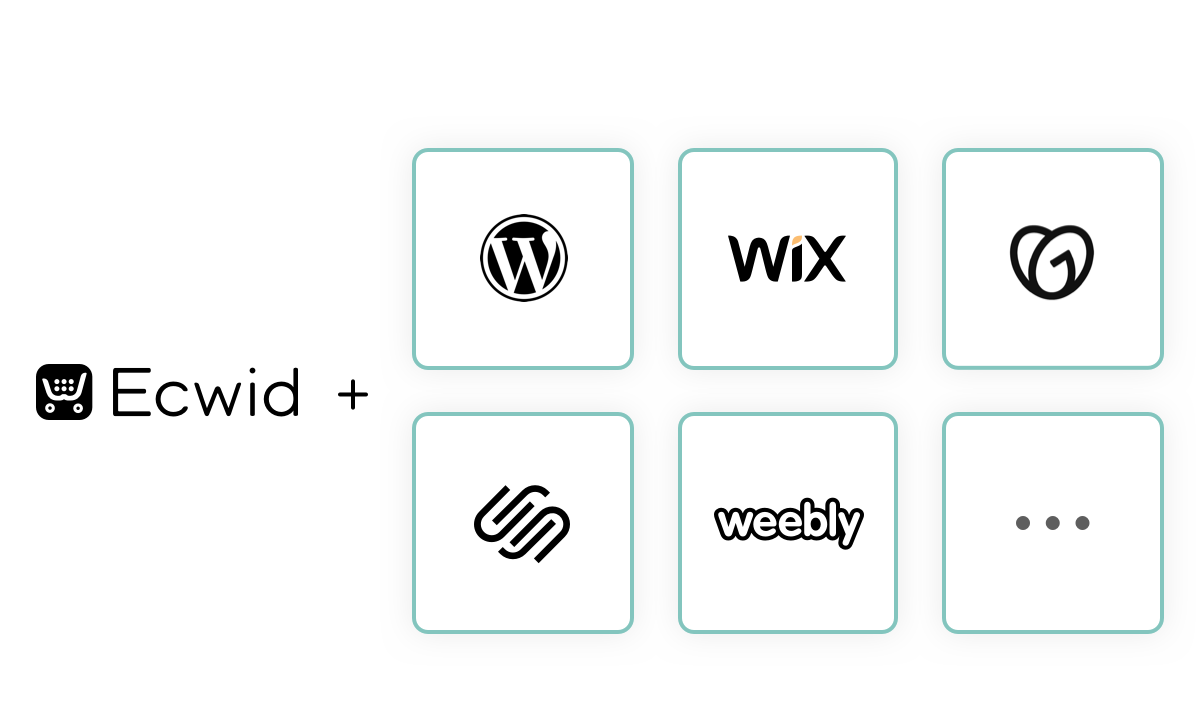Despite the pandemic causing economic uncertainty, ecommerce store sales continue to rise at a formidable rate, adding up to

As such, the market represents an exciting opportunity for entrepreneurs who are happy to step into the competitive world of ecommerce.
If you are thinking about starting your own online store, you’ll need to research the best ecommerce CMS solutions.
Within this article, we’ll be looking at the best ecommerce CMS platforms, what they do, and what you should consider before choosing one. Read on for more information about the best CMS for ecommerce.
What Is an Ecommerce Content Management System?
A content management system (commonly referred to as CMS) is a platform that lets ecommerce retailers create and maintain a digital website without needing any coding knowledge. CMS platforms let users modify their online store, change page layout, add promo banners, or create new website sections or functions to drive sales and grow the business.
However, retailers can also choose an ecommerce platform (like Ecwid). This is an online store builder that lets you sell products and manage your retail business through a variety of channels. Certain ecommerce platforms act as a CMS, offering simplified infrastructure that manages
If you are looking for a reliable CMS for your ecommerce business, consider one of these CMS platforms.
What Should an Ecommerce CMS Include?
There are numerous features you should consider when choosing an ecommerce CMS for your business. These include:
SEO-friendly
User-friendly for customers and admin
Customers want a
In addition, the store should also be optimized for mobile — shopping via mobile is becoming increasingly popular. In short, your ecommerce CMS should cater to the mobile experience.
Also, your CMS should be
What is the Best Ecommerce CMS Platforms for Your Retail Business?
Shopify
Shopify is a
BigCommerce
BigCommerce is one of the most popular ecommerce platforms available. Supporting over 60,000 retailers and boasting many
The platform offers advanced SEO integration and APIs so retailers can connect to other CMS platforms and software, while using the BigCommerce in the
WordPress + WooCommerce
WordPress is a commonly used CMS platform, utilized by millions of websites. However, WordPress is not strictly an ecommerce platform. Online stores that use WordPress require the WooCommerce plugin.
The WooCommerce platform has a massive selection of themes, features, and extensions — many of which are free. These plugins can add missing WooCommerce functions with a simple click, creating a
WooCommerce is not the only WordPress plugin that adds a shopping cart to your website.
Drupal
Like WordPress, Drupal is not designed solely for ecommerce. However, when you add numerous plugins, you can turn this CMS system into a comprehensive ecommerce platform. Drupal is an
Drupal commerce offers plenty of flexibility, especially when paired with the BigCommerce
Joomla
Joomla is another
Sitecore
Sitecore is one of the top digital platforms to combine commerce, content, and automation with design personalization and editing functionality. This platform lets retailers create a digital storefront and create a personalized commerce experience for the consumer. Like many other CMS platforms, Sitecore offers plugins to combine
Magento
Owned by Adobe, Magento boasts an impressive reputation and is used in more than 250,000 online stores. These platforms offer impressive functionality and a huge list of extensions, including CRM, ERP, and chatbot integrations. Magento works for various types of retailers. However, most users are
Prestashop
Prestashop is an
You don’t need to be an experienced developer to create a Prestashop, which is good news for small or
OpenCart
OpenCart is yet another
Wix
Wix is a
With numerous templates, features, and no code required, Wix appeals to beginners and retailers with limited coding knowledge. If you have a small range of products and want to create an online store quickly, Wix could be an excellent choice, However, when you choose a template, you cannot alter it if you change your mind later.
Volusion
Volusion offers
Try Ecwid for Your Online Store Needs
Alternatively, you can try Ecwid’s ecommerce platform for all your online store requirements. We make selling online efficient and easy. Create your own store and sync with your website, marketplaces, social media, and more. Scale your business with our comprehensive automated marketing tools, and manage your entire online store from the Ecwid control panel.
The best thing about Ecwid is it’s connectivity with almost any platform. Ecwid integrates with any CMS and becomes a natural part of it. And you don’t even have to have coding skills to do that.








